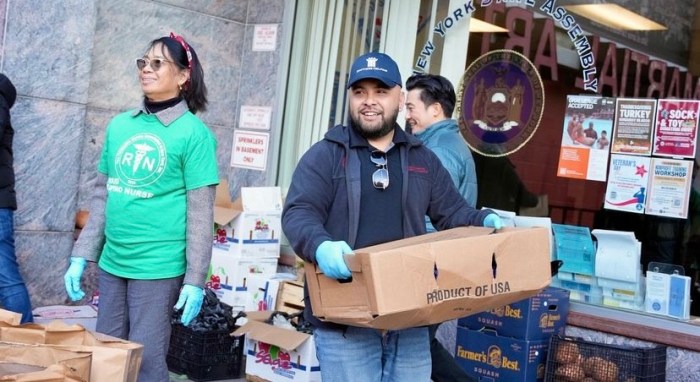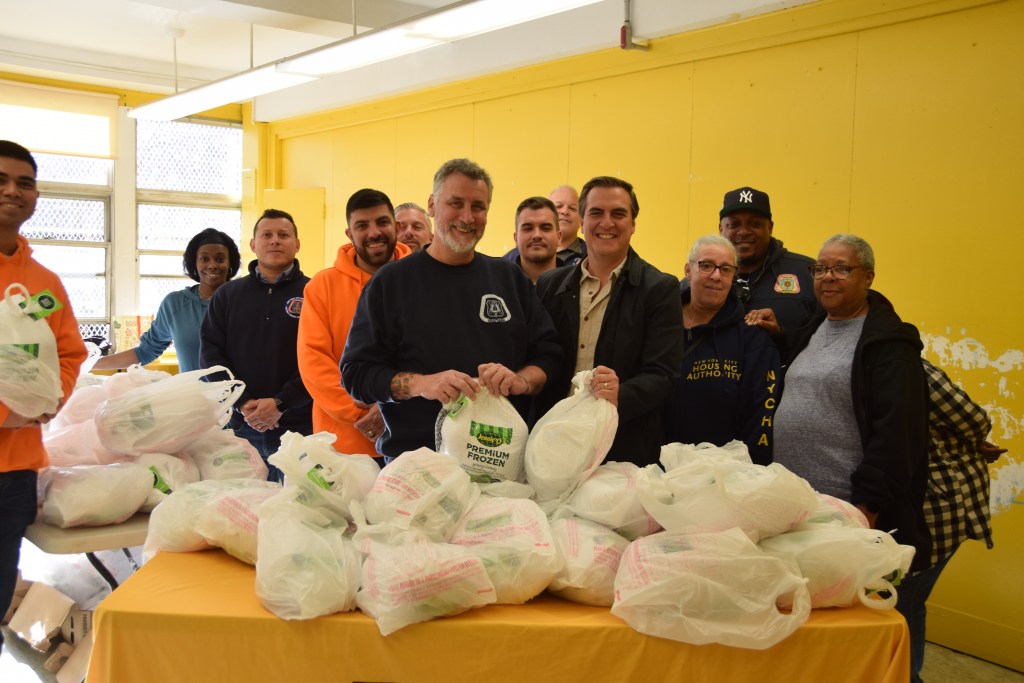It took three long ordeals for Edward Lee Cooper to become homeless. First, he lost his job in the package room of a Manhattan real estate company and started working odd jobs. Next, the odd jobs ran out and he started receiving public assistance. Third, the public assistance ran out and he was evicted from his Harlem apartment.
But after one short week in the citys shelter system, a new program has helped the 33-year-old Brooklyn native get back on his feet.
Cooper is one of four men who work five days a week in the fledgling Woodside wing of Ready, Willing & Able, a citywide project that provides housing and sanitation jobs to the homeless. Equipped with crisp blue jumpsuits and matching trash cans, Cooper and his colleaguesall with similar hard-luck storiesearn $5.50 to $6.50 an hour keeping Roosevelt Avenue and parts of Queens Boulevard clean between 45th and 61st Streets.
The Woodside operation started in mid-December. But City Councilman Eric Gioia (D-Woodside), who secured city funding for the initiative, gave the program a formal kickoff with a news conference last week.
Gioia said his office had received "numerous sanitation-related complaints" about Woodside and Sunnysides trash-filled business districts. But the councilman predicted that Ready, Willing & Ablewith the assistance of Woodside on the Move, the local development corporation that helps bankroll the projectwould change all that.
"We believe that Roosevelt Avenue should be just as clean as Park Avenue," Gioia said at one of his districts dirtiest intersections, Roosevelt Avenue and 61st Street. "And Im proud to say that as of today it will be."
Some local business owners say the changes have already begun.
"For years weve been fighting the garbage," said Woodside butcher Jerry Ottomanelli. he added that battle had finally ended. He pointed to the sidewalk outside his shop as proof. "You wanted to know if its working? Look at this. Look. Isnt it beautiful?"
Shop owners have George McDonald to thank for the beauty. McDonald founded the Doe Fund nonprofit in 1985 to help homeless men and women rebuild their lives.He launched Ready, Willing & Able as an offshoot of that project five years later.
The program, which matches public funds with grants from local development corporations, has developed into one of the Doe Funds largest initiatives and has graduated more than 1,300 people.
One of those graduates is Craig Trotta. Trotta kicked a 22-year drug habit through Ready, Willing & Able. He said the organization differs from other programs by boosting participants self-confidence.
"Other programs beat you down verbally," said Trotta, who now works as Ready, Willing & Ables operations director, and distinguished by his bright red jacket and ski cap. "In our program we build the guys back up."
The program teaches job skills and financial discipline. Participants train for one month before they are deployed to the streets. They live in one of two residential facilities and pay $50 per week for rent. They put aside $30 per week. When they graduate to other jobs, usually after 12 to 18 months, the program matches their total savings.
Its the thought of graduation that sustains Cooper through tough constrictions, like regular drug tests and a 10p.m. curfew. He said he plans to get certified as an HIV/AIDS counselor when he prepares for reintegration into the workforce during the programs final phase.
"People have looked out for me," Cooper said. "Hopefully with this certification Ill be able to give back to someone else."



































